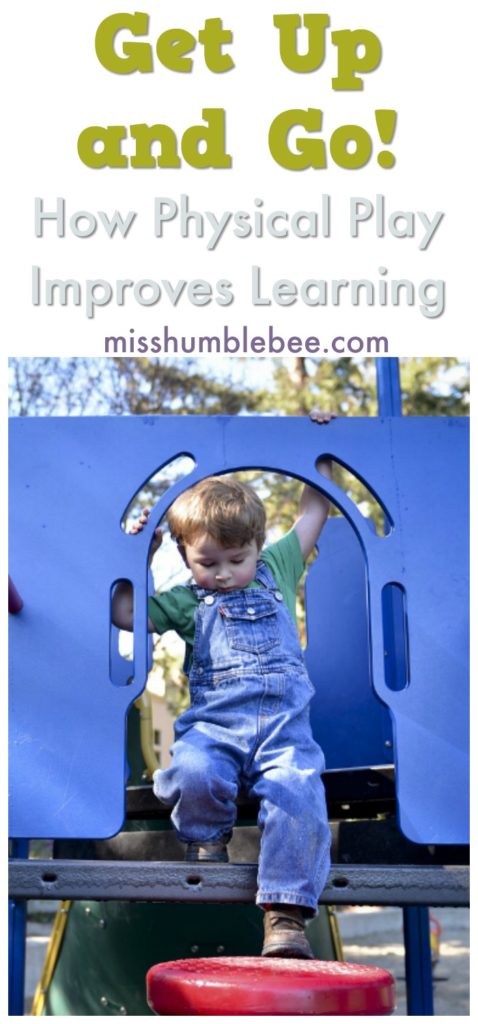Below: Do you want your child to get the most out of their instructional time at school? Maybe they need more recess! Here’s how physical play improves learning:
Think back to your childhood. How did you spend your time? Where did you spend your time? Although each answer might be unique, there would also be plenty of commonalities.
Most adults spent a lot of time outdoors as kids. Running, riding bikes, playing ball, climbing trees. Even when inside, a lot of time was spent in active play. Building forts, having ‘stuffed animal wars’ or pillow fights, hide and seek.
At school there were at least two recesses each day, sometimes more, and they were fairly long. Kids ran off the energy they’d built up in the classroom with a rousing game of tag, four square, hopscotch, or jump rope. They learned social dynamics by interacting with their peers without (much) adult intervention.
There were certainly plenty of time to relax as well, watching television or playing Atari or Nintendo, but the bulk of children’s free time was spent doing something active.

Now think about your own children. How much time do they spend in active play? How much time during the school day do they spend at recess?
Kids have more opportunities than ever for sedentary play, eve though most parents do their best to ensure their children get necessary physical activity. Even so, that can be a difficult task when even the educational system sometimes works against this goal.
With rising demands on teachers to meet ever growing standards, there has been a trend in recent years that has cut back significantly on recess time in order to fit in all the required academic work. According to the website Children at Risk, kids get an average of 20 minutes of recess per day, which amounts to a drop of one hour per week since 2001.
But is this a good move?
According to Scholastic, “No research supports the notion that test scores go up by keeping children in the classroom longer, but there is plenty of evidence that recess benefits children in cognitive, social-emotional, and physical ways.”
In other words, the benefits of recess far outweigh the (perceived) detriments.
In an article published by the American Academy of Pediatrics, it is pointed out that numerous studies show that recess “made children more attentive and more productive in the classroom.” In other words, recess allows teachers to teach more in less time because children stay on task better when they’ve had the physical and mental break that recess provides.
Furthermore, research supports the idea that physical play decreases behavioral problems, allows children the chance to practice skills they’re learning in the classroom, and practice a variety of social skills they don’t have the opportunity to use in a classroom setting.
So what is a parent to do?
Regardless of your child’s school recess policy, it’s important that he gets the active play he needs at home too. While planned activities are great, unstructured active play is just as important.
Get your child out in your yard or at a nearby park or playground. Offer a few open-ended toys or materials (this can be anything from a multi-purpose ball to some sticks you found on the ground) and let her imagination run wild.
If possible, stay out of the play. Solo play allows your child full control, and play with siblings and friends allows your child to learn and practice social skills.
If the weather doesn’t allow for outdoor activities, your home can become a fun place for active play. Again, offer open-ended toys and watch your child’s imagination at work.
But what about school recess?
Many schools understand the importance of recess and have time set aside multiple times a day for it. Others have not. Check with your child’s school to find out their policy.
If they don’t offer very much time for recess, consider your options. You don’t want to become “that parent;” however, parent advocacy done in a respectful way can lead to big changes.
You may want to start with your child’s teacher. Some schools give teachers more leeway than others in planning their schedules. You can also try email, a phone call, or a meeting with the principal or superintendent to express your concerns and talk about the research that shows the importance of recess. Finding other like-minded parents can also help.
Regardless of the outcome at school, you still have the opportunity to help your child reap the benefits of getting active, and those benefits will last a lifetime.










